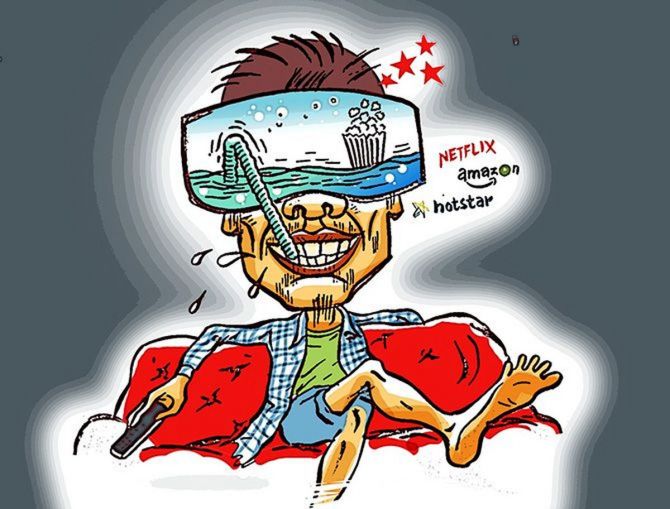'Subjecting each such creative content to scrutiny will impose burdens on the OTT platforms and impact user experience.'

The government's proposed changes to broadcasting regulations could potentially impede creative expression and restrict freedom of speech, according to experts.
The draft Broadcasting Services (Regulation) Bill, 2023, which was released for public consultation, seeks to enforce government-mandated programming and advertising rules on broadcasting platforms, including over-the-top (OTT) services.
Ranjana Adhikari, partner at IndusLaw, expressed concerns that subjecting creative media, such as OTT, to government-prescribed programme and advertising codes could "stifle creativity and have a chilling effect on the cherished freedom of speech and expression".
She also noted that the heavy compliance burden proposed in the draft Bill could overshadow the continuation of the self-regulatory mechanism for compliance monitoring and grievance redress.
The draft Bill proposes the setting up of Content Evaluation Committees (CECs) and a Broadcast Advisory Council (BAC) to oversee content.
However, experts believe the requirements under the proposed regulation to set up CECs under the government-prescribed criteria to self-certify every content is likely to pose significant hurdles to the ease of doing business for OTTs.
"In addition to original domestic content, most OTT platforms license content from abroad," Adhikari pointed out. "Subjecting each such creative content to CEC scrutiny will impose burdens on the OTT platforms and impact user experience."
According to the draft Bill, a BAC will oversee content at the third tier of the proposed regulatory structure.
Though the BAC would have a majority of independent domain experts, it would still be an advisory body.
The ultimate decision in the event of a breach of the codes shall rest with the central government.
"The consultative nature of BAC may pose a potential threat to free speech, especially because the draft Bill seeks to extend its jurisdiction to include digital news," Adhikari explained.
Furthermore, the proposed uniform content regulation risks "standardising" content across platforms, leading creators towards broadly appealing themes to meet compliance, thereby risking the diversity and creativity currently seen, said Shruti Shreya, senior programme manager, The Dialogue.
"OTT platforms are known for their innovative and varied storytelling, which may get constrained under strict regulations."
The Ministry of Information and Broadcasting has invited comments and suggestions on the draft Bill till December 10.
The draft bill, once passed in Parliament, would replace the Cable TV Networks (Regulation) Act, which has served as the primary legislation for linear content since 1995, and also supersede some provisions regarding OTT and digital media entities under the IT rules, 2021.
Feature Presentation: Aslam Hunani/Rediff.com











